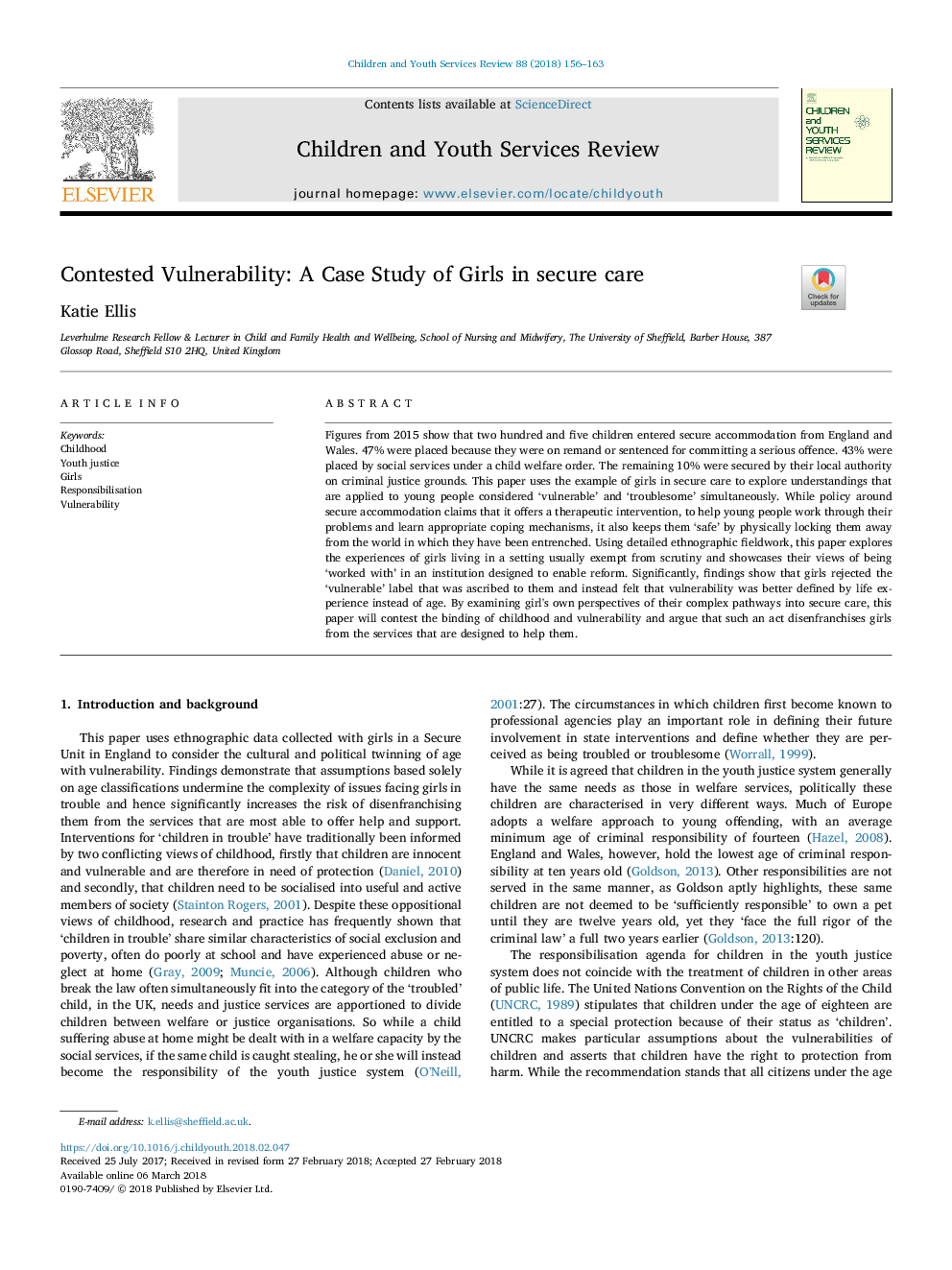ترجمه فارسی عنوان مقاله
آسیب پذیری مورد رسیدگی: مطالعه موردی دختران در مراقبت های امنیتی
عنوان انگلیسی
Contested Vulnerability: A Case Study of Girls in secure care
| کد مقاله | سال انتشار | تعداد صفحات مقاله انگلیسی |
|---|---|---|
| 138870 | 2018 | 8 صفحه PDF |
منبع

Publisher : Elsevier - Science Direct (الزویر - ساینس دایرکت)
Journal : Children and Youth Services Review, Volume 88, May 2018, Pages 156-163
ترجمه کلمات کلیدی
دوران کودکی، عدالت جوانان، دختران، مسئولیت پذیری، آسیب پذیری،
کلمات کلیدی انگلیسی
Childhood; Youth justice; Girls; Responsibilisation; Vulnerability;

